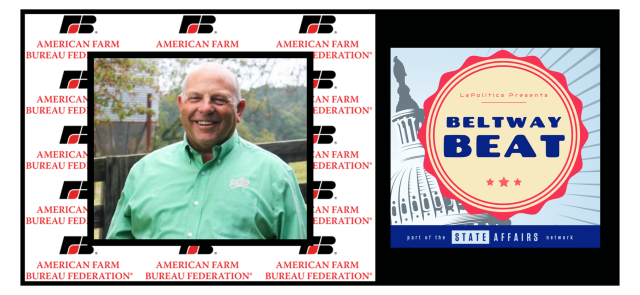Stay ahead of the curve as a political insider with deep policy analysis, daily briefings and policy-shaping tools.
Request a DemoGuest Column: How the FTC’s new rule could stall your next vehicle purchase

Coulter McMahen, president and CEO of the Louisiana Automobile Dealers Association
Imagine you’re preparing for one of the biggest purchases of your life: buying a new car. You’ve done your research, visited the dealership, and told the sales representative what you’re interested in.
But before the conversation can even begin, you’re required to sign a form acknowledging the price of the vehicle has been disclosed to you. Only then can the sales representative begin to understand your needs and help guide you toward your dream vehicle.
You take a test drive, and as you leave the lot, another car catches your eye. Naturally, you ask about it. The process grinds to a halt. You must pull over and return to the office to sign yet another form acknowledging the price of this new vehicle. Only then can the discussion about whether it’s a better fit begin.
Sound exhausting? This is just a glimpse of how the Federal Trade Commission’s new vehicle shopping rule—misleadingly branded as the Combating Auto Retail Scams (CARS) Rule—could disrupt and complicate the car-buying experience.
The FTC’s rule will bog down consumers and dealerships alike with unnecessary costs, endless paperwork, and a much longer sales process. Despite significant flaws in its development and a lack of credible, data-driven analysis, the FTC finalized the rule in December 2023. The rule will add over an hour to the car-buying process, costing consumers $1.3 billion annually, and is projected to cost dealerships $24 billion in lost time over the next decade, according to a study by the Center for Automotive Research.
Even more troubling is that the FTC failed to test the new disclosures with consumers, which has been standard practice in the past. Lawmakers from both sides of the aisle have expressed concerns that the rule was rushed and will harm both consumers and small business owners.
To make matters worse, the rule gives the FTC the power to impose fines of over $50,000 on dealerships that violate its overly complex requirements. These include new burdens, such as forcing dealers to record every written communication with potential buyers, even text messages.
That’s why we at the Louisiana Automobile Dealers Association fully support the National Automobile Dealers Association’s call to action. We urge members of Congress to stand up for their constituents and local business owners by cosponsoring the FTC Review of Expensive and Detrimental Overregulation (REDO) Act (H.R. 7101/S. 3014). As President and CEO of LADA, it is my responsibility to protect Louisiana’s automobile industry and consumers from unnecessary costs and delays at dealerships—especially when purchasing a vehicle should be an exciting, celebratory moment.
Recently, LADA traveled to Washington, D.C., to personally advocate for our elected officials to revisit this rule. I encourage everyone to contact their congressional representatives and urge them to cosponsor this bipartisan legislation. The FTC must follow the proper steps to ensure that any new rule is based on a thorough, informed process.
Coulter McMahen is the president and CEO of the Louisiana Automobile Dealers Association.
This column was edited for length and style.
Know the most important news affecting Louisiana
Get our free weekly newsletter that covers government, policy and politics that impact your everyday life—in 5 minutes or less.
DUVALL: New farm bill crucial for all Americans, not just farmers
The farm bill is critical to the success of America’s farmers. It must be renewed every five years, and it provides farmers with a safety net to survive difficult times. Despite its importance, the farm bill expired in September 2023. Congress passed a one-year extension, but that too has now expired. You don’t need to …
Our History: Hurricane Rita
Hurricane Rita, the fourth-strongest Atlantic hurricane ever recorded, made landfall in the early-morning hours of Sept. 24, 2005. Rita reached a peak Category 5 intensity, with sustained winds of more than 180 miles per hour. It came ashore as a Category 3 in Cameron Parish just east of the Louisiana/Texas border, and was the strongest …
What you may have missed in LaPolitics Weekly
Here’s what you may have missed in the latest issue of LaPolitics Weekly, published last week… — ROAD TO REFORM: Gov. Jeff Landry’s ambitious tax overhaul would hinge in part on voter approval of a constitutional amendment in a sleepy March election when turnout might not reach 20 percent… — TOURISM PROS SWEAT THE DETAILS: …
Headlines and Bylines (10.22.24)
— BRProud: Judge to decide if Ten Commandments can be posted in Louisiana classrooms — The Advocate: What do polls show about Baton Rouge’s mayor’s race? Here’s what we know — KPLC: Multiple parishes in Southwest Louisiana join forces for the Louisiana CO2 Alliance — The Advocate: With massive coastal project stalled, feds demand answers …



